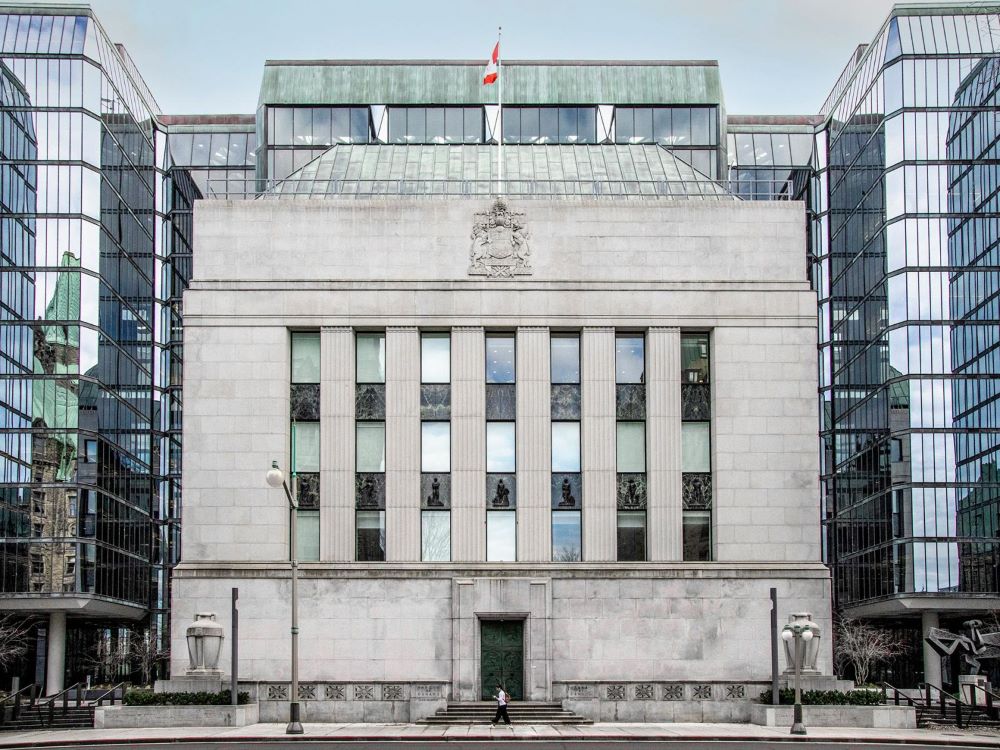RBC: Moderate recession could come in early 2023
Rate hikes, inflation, cooling home prices – it could get a bit bumpy

The Bank of Canada complex sits in Ottawa. – Bank of Canada Museum
Key Takeaways:
- RBC Bank expects a moderate recession to hit in the first quarter of 2023.
- If inflation can’t slow sustainably, more rate hikes could come and the recession could deepen.
- The manufacturing sector will likely be the first to pull back when the recession hits.
The Whole Story:
A moderate recession could creep into Canada sooner than expected.
The Royal Bank of Canada (RBC) believes that the downturn could hit as early as the first quarter of next year.
Previously, the bank projected a moderate recession for Canada’s economy in the second quarter of 2023. They now believe this downturn will arrive as early as the first quarter of next year.
RBC added that higher prices and interest rates will trim $3,000 off the average household’s purchasing power, weighing on goods purchases.
The bank expects the jobless rate to approach 7 per cent while remaining less severe than in previous downturns.
RBC experts added that as debt-servicing costs increase and purchasing power declines, lower income Canadians – many already adjusting to the loss of pandemic support – will be hit hardest.
One of the main points RBC made was that no matter when the recession hits, it won’t be felt equally by all.
“The manufacturing sector will likely be among the first to pull back while some high-contact service sectors like travel and hospitality could prove more resilient than in a ‘normal’ historical recession,” wrote RBC experts.
The bank noted that they have already seen cracks forming in the economy, including a sharply cooled housing market and an aggressive rate-hiking cycle by central banks. RBC added that while labour markets remain strong, employment is down by 92,000 over the last four months.
“While the Bank of Canada is expected to lift the overnight rate to 4 per cent, the U.S. Federal Reserve will likely hike to between 4.5 per cent and 4.75 per cent by early 2023,” wrote bank experts. “These factors will hasten the arrival of a recession in Canada.”
RBC experts explained that what happens next will depend on a range of factors, with interest rate increases the most significant among them.
“Central banks will be reluctant to throw in the towel on rate hikes before they are confident that inflation will slow sustainably,” they wrote. “We expect the Bank of Canada to pause its rate-hiking cycle in late 2022 followed by the Fed in early 2023.”
They noted that this is contingent on inflation pressures easing.
“More stubborn inflation trends over the coming months could yet prompt additional hikes, and a potentially larger decline in household consumption and a deeper recession,” they added.

